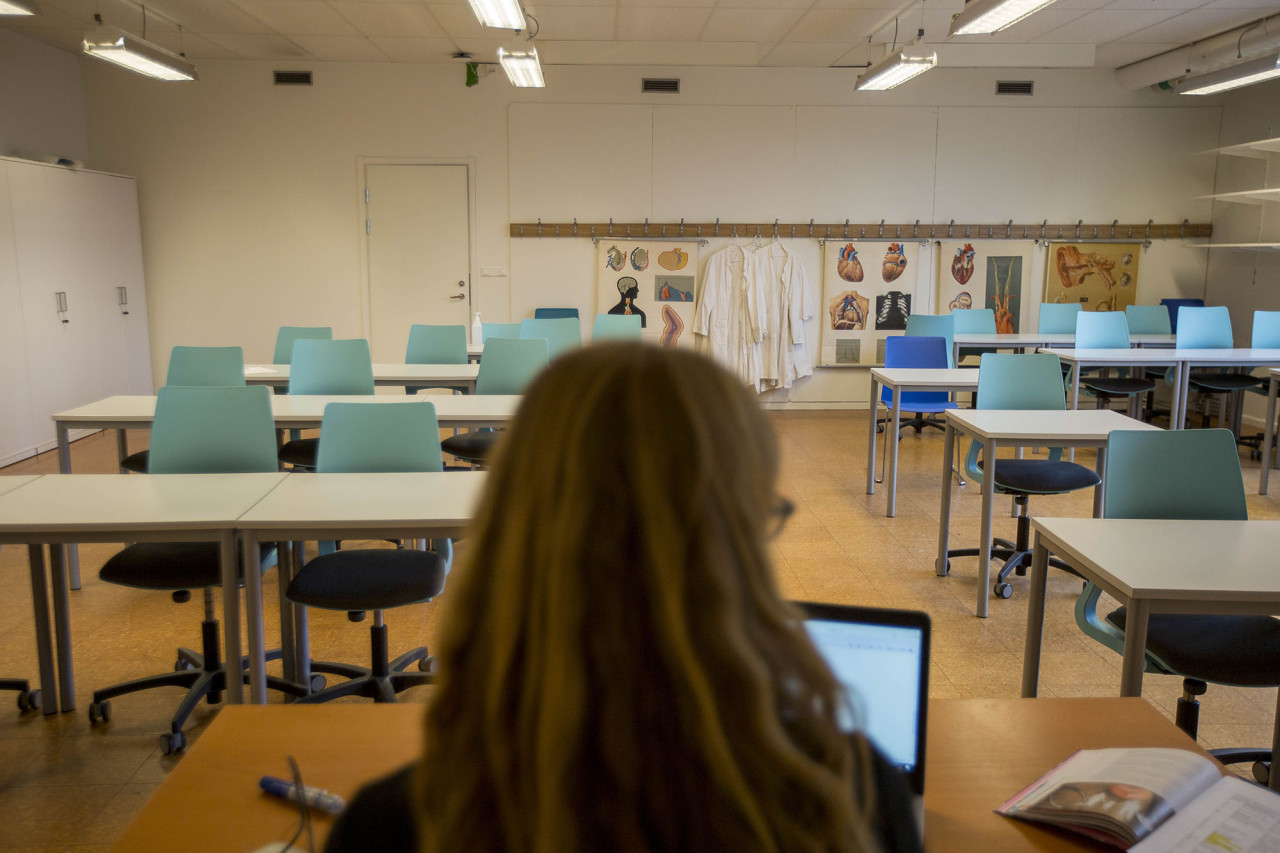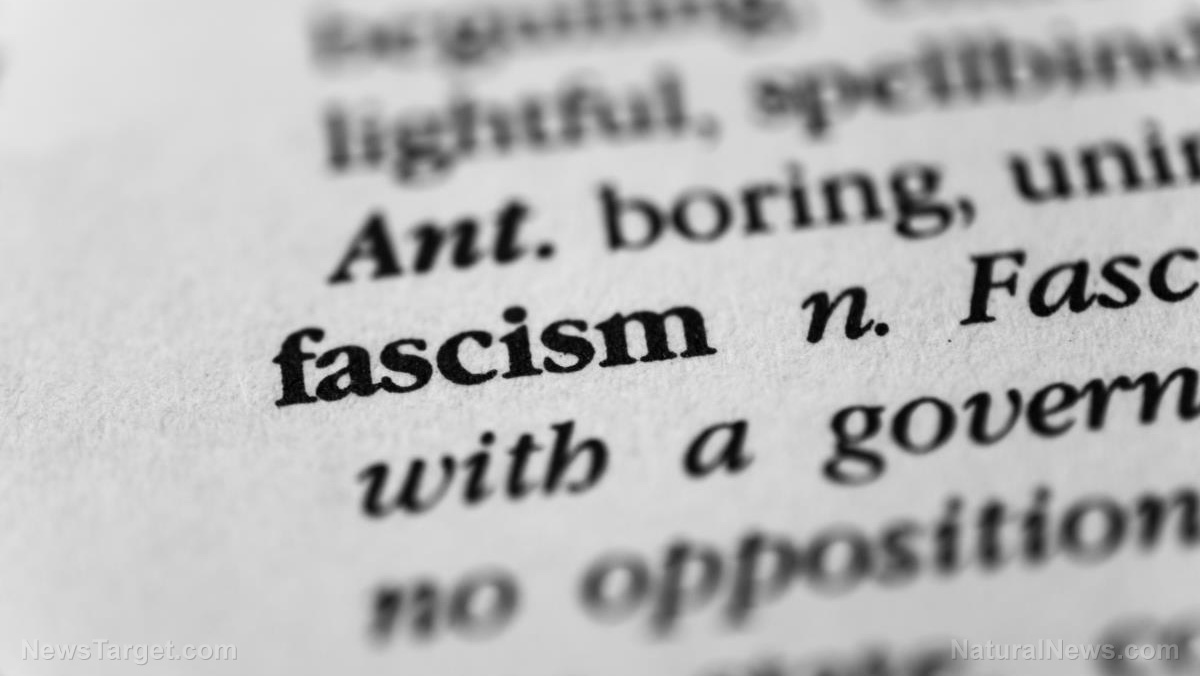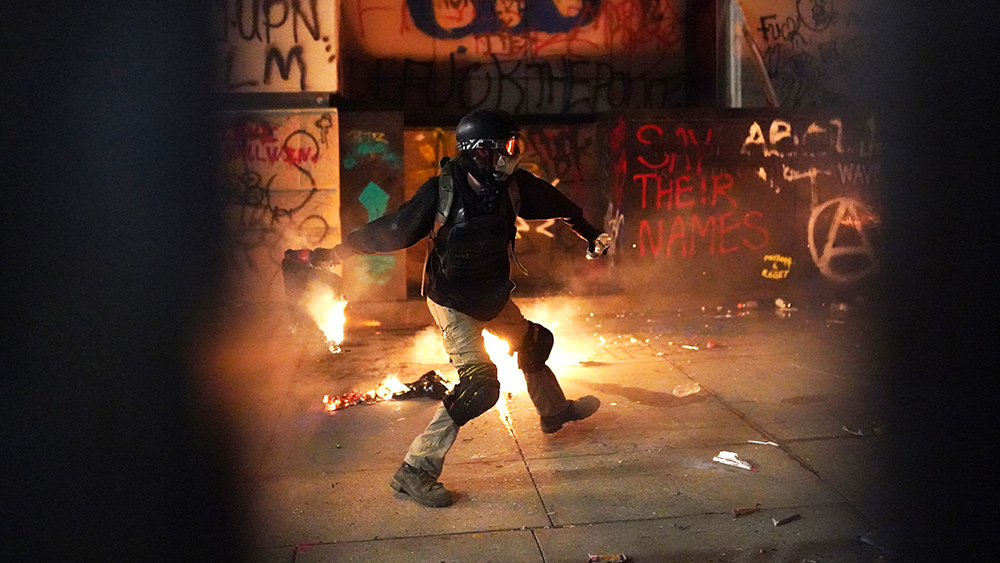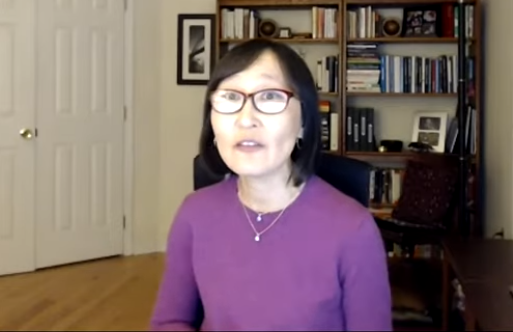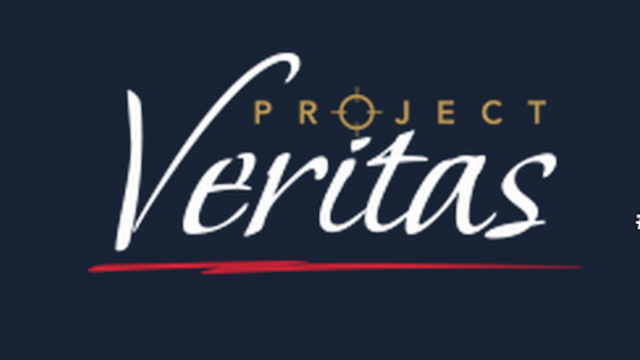America’s Muslim #MeToo moment
07/05/2021 / By News Editors

The Council of American-Islamic Relations (CAIR) presents itself as a protector of civil rights; the guardian of America’s Muslim community. Its vision, it claims, is “to be a leading advocate for justice and… to enhance understanding of Islam, protect civil rights, promote justice, and empower American Muslims.”
(Article by Ayaan Hirsi Ali republished from UnHerd.com)
But behind this seemingly noble mission lies another more political, and at times sinister, agenda. Since its inception in 1994, CAIR has, according to the Global Muslim Brotherhood Research Center in 2007, “been intimately connected to a network of extremist Islamist groups centred on Hamas”. Its historical affinity with extremism has, however, remained poorly understood by the general public, as well as many American Muslims who take CAIR’s public statements at face value, or believe it just supports the general Palestinian cause.
Thanks to a whistleblower’s brave new testimony, revelations over the past month have revealed another side to CAIR: namely, its alleged tactics of shutting down debate around the gender-based violence that affects women within Muslim communities.
I should declare here that I have a history with CAIR. Only a few months ago, the organisation attempted to pressure San Francisco’s Commonwealth Club into cancelling a discussion between me and journalist Bari Weiss about my new book, Prey, which discusses the recent rise in sexual assault and harassment in Europe in the context of mass migration from Muslim-majority countries.
CAIR-California mobilised their nationwide network, both privately and publicly, demanding that the club does “not lend their platform to hateful voices.” Ultimately, the CAIR campaign failed and the event was a success — though I doubt that it’s the last I’ll hear from them. Indeed, I am quite used to a pattern of attempted cancellations by CAIR and its sister organisations, notably the Muslim Student Association. Some attempts, as with the honorary degree I was supposed to receive from Brandeis University, have been successful. Not every institution stands its ground the way the Commonwealth Club did.
Yet my run-ins with CAIR seem relatively minor when compared to the entrenched internal culture of misogyny, homophobia and abuse alleged in recent federal court filings.
Enter Lori Saroya.
Saroya, whose parents immigrated to the United States from Pakistan, was raised in a small town in southern Iowa. From a young age, she showed an interest in civil rights and social justice; she became the President of the Muslim Student Association at her university, and later co-founded CAIR-Minnesota. Eventually she joined the National Board and worked her way up to become a Chapter Director in 2017.
Like many Americans, Saroya was convinced that CAIR was everything it claimed to be. That, in itself, is unsurprising. CAIR’s cleverness is that, despite having a fairly marginal following among American Muslims, it has managed to position itself as the defender of civil rights of all American Muslims, and as the main intermediary between US intelligence and law enforcement agencies and grassroots communities.
That isn’t to say that allegations about a toxic culture inside CAIR are anything new. Since moving to the United States in 2006, I’ve heard whispers of allegations against men in the upper ranks of CAIR — stories of women claiming sexual harassment or assault, but too frightened to come forward.
The women who approached me fearfully described an organisation that is “Mafia-like”; they walked on eggshells, terrified of the control, the aggression and the manipulation. All were willing to tell their stories behind closed doors, but none dared to go public. Not even at the time of #MeToo.
That is what makes what Saroya sets forth in a recent filing in federal court so remarkable.
On January 12th, Hassan Shibly resigned as the executive director of CAIR’s prominent Florida chapter, after his wife publicly accused him of domestic violence, allegations which he denied. “For years I have been in an abusive relationship and the situation at home has become unbearable,” she said in a video on GoFundMe. Shibly has denied these accusations, dismissing them as an “attempt to smear me and fraudulently raise money from the community while capitalising on my name recognition.”
Then, in April, following a series of public posts by Saroya critical of CAIR, National Public Radio interviewed “half a dozen” other women who had come forward “with their own accusations of emotional abuse and sexual misconduct by him”. Shibly’s departure, NPR reported, “emboldened a slew of women to come forward with their own accusations of emotional abuse and sexual misconduct by him and of workplace discrimination at CAIR’s national office and several prominent chapters”.
Clearly it rattled CAIR. After the report was published, CAIR filed a federal defamation lawsuit against Saroya. “Since her departure from CAIR in 2018,” it claims, “Saroya has been actively engaging in a systemic and continuous internet smear campaign to damage CAIR’s reputation and to cause CAIR severe economic harm.”
Earlier this month, Saroya filed her response — published online here — and it makes for grim reading.
It details how Sayora attempted to resign in 2016 over CAIR’s “refusal to take any action at all regarding the evidence of Shibly’s mistreatment of women and others”. Nihad Awad, the National Executive Director of CAIR and one of its founders, convinced her to stay, but was unhappy that she continued to press for an investigation of Shibly.
Eventually, in 2018, Saroya did resign from CAIR. She withstood pressure from Awad, who allegedly attempted to bully her into signing a non-disclosure agreement threatening that “CAIR is a very powerful organisation.”
Saroya’s legal response explicitly mentions Awad, a married father of three, and his allies. She states that over her ten years working for CAIR, “she was forced to endure and witness unethical, and at times illegal, conduct”. This included sexual harassment, assault and discrimination. By May, she’d had enough. She alleges:
“It was at the CAIR retreat that Mr. Awad’s unwelcome, inappropriate and offensive behavior toward Ms. Saroya reached a point where she decided that she would in fact resign. Prior to that point, Mr. Awad, Ms. Saroya’s supervisor, had on various occasions asked her out to a personal lunch with him, asked her to put away her notebook and stop talking about work, and insisted on driving her back to her hotel during conferences and retreats. In May 2018, while out of town on a work trip, Mr. Awad asked Ms. Saroya to meet him in the hotel lobby at midnight. When she complied, he said to her with a smile “Do you know that [other CAIR employees] think there is something going on between us?” This latest escalation of Mr. Awad’s shocking and repulsive behavior led Ms. Saroya to realise she needed to leave CAIR for her own safety and well-being.”
After resigning, it continues, Saroya was “shocked at the sheer number of women, past and present, who revealed their appalling experiences at CAIR National and affiliate chapters in a number of CAIR victim support groups and other channels she joined after her departure from CAIR”.
Her testimony is undoubtedly unsettling. But it also raises an uncomfortable question: why were concerns about the alleged abuse at CAIR not aired during the height of the #MeToo movement?
The answer, I believe, is rooted in a fundamental tension between America’s Muslim community and their country — one that is illustrated by the way that CAIR’s leadership retains control of three spheres of influence.
The first is internal: within the Muslim community, there is an honour and shame dynamic that is both compelling and insidious. When the victims in the #MeToo movement came forward, the prevailing culture called for the male predators to be held to account. The women were not blamed or shamed.
The Arab-Islamic attitude towards sex and sexuality, however, is rigid in its honour code. Women who have been victimised are often approached with an air of open suspicion. What were you wearing? Why were you in the car alone with a man? Why are you working outside of the home? The woman is assigned the blame and faces the prospect of causing her family real shame and dishonour, even if the woman is a victim.
In addition to the honour and shame dynamic, there is a related “in-group” and “out-group” attitude. The very act of a person from the Muslim community seeking legal counsel, police involvement or media attention outside of the Muslim community — or even outside of her own ethnic or extended family community — can be viewed as a betrayal of all Muslims, rather than an individual plea for help. In a community where you have to seek to resolve your grievances internally or shut up, women will frequently gravitate to the latter option by default.
Secondly, there is CAIR’s influence over the American-Muslim identity. CAIR shapes the image of what America is for Muslims, projecting a message that Islamophobia is around every corner and just one wrong word could result in a rise of attacks against Muslims nationwide. In the face of this perceived Islamophobic threat, CAIR presents itself as the only barrier standing between Muslims and persecution. And what practising Muslim — especially those who have already fled from persecution in other countries — would dare to question that? Even if you don’t necessarily agree with everything CAIR says, you wouldn’t want to undermine the fight against Islamophobia, would you?
This also relates to CAIR’s third sphere of influence: the one that concerns the wider society. The #MeToo movement rose against the backdrop of identity politics and the backlash against the Trump administration. And no organisation has profited more from this than CAIR. In the years since #MeToo reached its peak, CAIR has cynically leveraged identity politics by explicitly styling itself as the defender of minorities. It is, so the thinking goes, the last place that people would expect to find any form of mistreatment of women. And, even if someone did, it would be easy to cry Islamophobia, bigotry, and xenophobia. Any critics would be defamed, dismissed and ignored.
But now, thanks to Saroya’s courageous refusal to be silenced, those spheres of influence have never looked so fragile.
I have never been a vocal supporter of the #MeToo movement. There were too many unsubstantiated allegations, too many reputations destroyed for lapses of taste rather than crimes, too much attention paid to Hollywood when much worse offences were being committed against less privileged women in more obscure places. Women, it should be noted, like those at CAIR.
Of course, CAIR’s lawsuit against Saroya is yet to be concluded; and Saroya’s testimony yet to be countered; so far, the allegations against the organisation and individuals concerned remain exactly that: allegations. But the public fury of women such as Saroya surely marks a turning point for Muslim women in the US. Make no mistake: America’s Muslim #MeToo moment is here.
Read more at: UnHerd.com and Deception.news.
Tagged Under: abuse, American Muslims, CAIR, deception, domestic violence, extremism, Gender-based violence, lies, Lori Saroya, metoo, misogyny, smeared, tyranny, whistleblower
RECENT NEWS & ARTICLES
COPYRIGHT © 2017 Extremism.News
All content posted on this site is protected under Free Speech. Extremism.News is not responsible for content written by contributing authors. The information on this site is provided for educational and entertainment purposes only. It is not intended as a substitute for professional advice of any kind. Extremism.News assumes no responsibility for the use or misuse of this material. All trademarks, registered trademarks and service marks mentioned on this site are the property of their respective owners.


